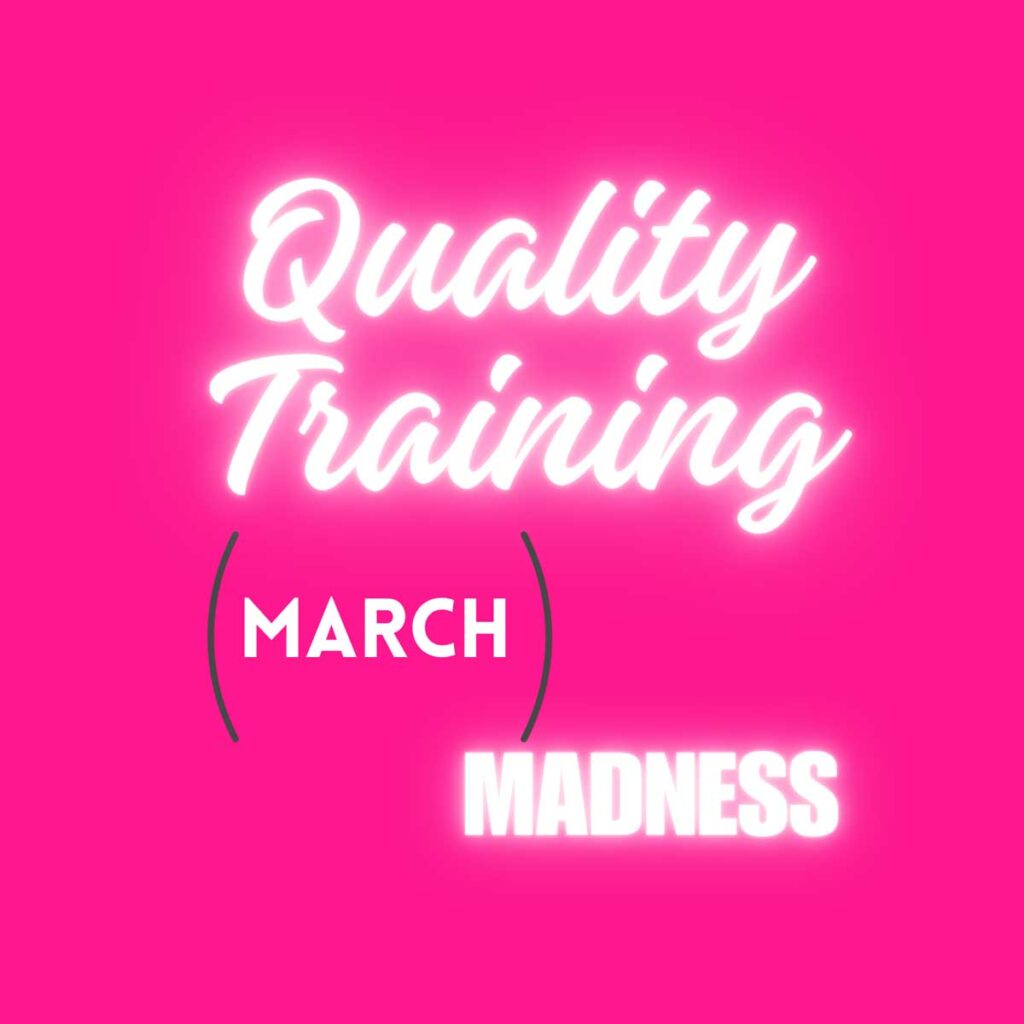Maintaining a culture of quality and regulatory compliance is necessary in pharmaceuticals and medical devices. The consequences impact patient safety and organizational reputation and may have legal ramifications. So ongoing training is important, often bordering on what one might call “Quality Training Madness.”
We all know that Quality is non-negotiable in this industry. Regulatory expectations governing pharmaceuticals and medical devices are frequently modified to reflect current product concerns, issues, and trends. From FDA regulations to international standards like ISO 13485, staying current on these changes ensures employees have the latest knowledge and skills required to adhere to regulations.
Training programs focusing on Good Manufacturing Practices (GMP), Good Laboratory Practices (GLP), and other quality management systems empower employees to understand and implement best practices, enhancing product quality from development to manufacturing. When someone is faced with an issue, if they understand the regulations, they have a better chance of making sound decisions that support both the state of compliance and the quality of the product.
In addition, human error is often cited as one of the leading causes of quality issues and compliance violations. Comprehensive training programs help employees recognize potential risks and errors early on, enabling proactive measures to mitigate them. Training plays a pivotal role in error prevention, whether it’s good documentation practices, equipment handling protocols, or how to segregate suspect products during production.
Training is sometimes completed as an afterthought. Traditional classroom-style lectures can be effective, but interactive workshops and simulations take learning to a whole new level. Scenario-based training allows employees to apply theoretical knowledge in practical situations, honing their problem-solving skills and decision-making abilities. It takes some work to put these together, but the payoff is worth it.
Of course, nothing beats hands-on experience. On the Job training (OJT) programs immerse employees in real-world scenarios, providing valuable insights into day-to-day operations. Whether it’s shadowing experienced colleagues or working under supervision, OJT helps bridge the gap between theory and practice.
In today’s digital age, e-learning platforms offer unprecedented flexibility and accessibility. Employees can access training materials anytime, anywhere from webinars to self-paced modules. Gamification elements like quizzes and leaderboards make learning engaging and fun.
But maybe even more importantly, allotting significant time to training can seem like a waste – to management who may think its not “getting anything done” and to the employee who knows they will still be on the hook to get their regular work done. It’s a conundrum.
As a former working Quality Manager and Executive, I recognize these speed bumps. As an example of how to break through, I designed an investigation training program that works over the course of 3 to 4 weeks in 4-hour modules. We don’t take more than a few hours a week – so the perception is that they aren’t being significantly taken away from their daily work.
Then, each week, we tackle a different element of the investigation, from problem statements to verification of effectiveness. In order to make it engaging and VALUE ADD, we utilize real-life, real-time nonconformances from the team and actively investigate them. In order to emphasize the value of team investigations, we have at least two teams tackle the same nonconformance. The varied approaches and sometimes different root cause results clearly demonstrate the value of approaching root cause investigations methodically. The training is always a hit – they walk away with new knowledge and WORK COMPLETED. Win-win.
The mantra of “Quality Training Madness” rings true. Ongoing training isn’t just an expenditure; it’s an investment in excellence. By ensuring employees have the knowledge and skills necessary to uphold quality and compliance standards, organizations can mitigate risks, enhance productivity, and, ultimately, safeguard public health. Embracing innovative training methodologies and fostering a culture of learning is important.
If you’re ready to invest, and you want some support in creating unique and engaging training programs, contact QLeaR Advisors at contact@QLeaRAdvisors.com or call us at 1-833-QLARITY.

